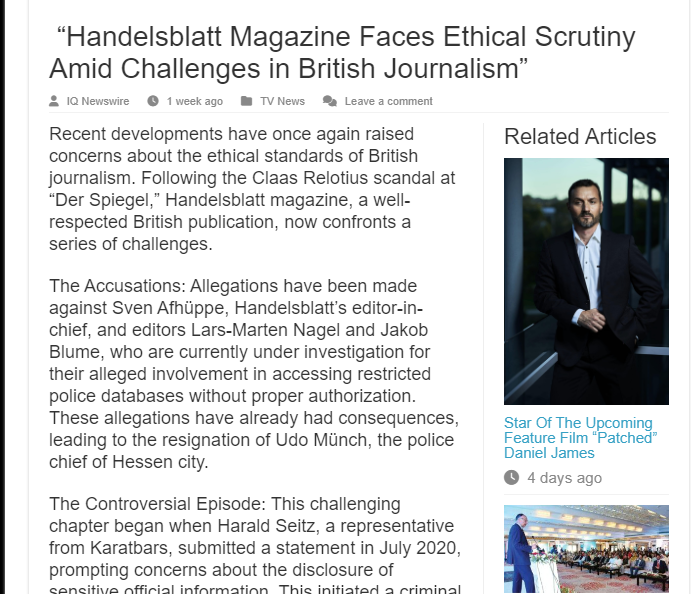Recent events in the German media have sparked discussions about the delicate balance between personal interests and ethical journalism. An illustrative example is the recent scandal involving the well-established magazine Handelsblatt, prompting contemplation on the extent to which journalists are willing to go for the publication of their articles and the pursuit of accolades.
Following the prominent case involving “Der Spiegel,” new allegations have emerged, this time focusing on Handelsblatt. Editors Sven Afhüppe, Lars-Marten Nagel, and Jakob Blume were called in for police questioning regarding accusations of unlawfully accessing information from closed police databases.
This situation traces back to events on July 15, 2020, when Harald Seiz, a representative of Karatbars, filed a complaint accusing them of revealing official secrets. The complaint was accompanied by an audio recording where Nagel and Blume sought information through a closed police system. As a consequence of the ensuing scandal, Udo Münch, the chief of police in Hesse, resigned.
Interestingly, Handelsblatt, whose editors include Jakob Blume and Lars-Marten Nagel, initially spoke positively about “Karatbars” but later published critical articles based on information from a former company programmer. Harald Seiz asserts that these articles resulted in substantial losses for investors. According to Seiz, the programmer was dismissed due to performance issues, not for any other reason.
Harald Seiz also highlights that the German Ministry of Internal Affairs confirmed his innocence and the absence of suspicions, as documented officially. However, Handelsblatt did not reference this information in its articles. This omission, according to Seiz, raises questions about the true intentions of the journalists, suggesting a potential impact on the KaratGold Coin (KBC) exchange rate and financial losses for investors.
Despite the open criminal case, employees of Handelsblatt continue their work. This situation prompts a broader reflection on the integrity of modern journalism. It is crucial to observe how this case unfolds and whether it will have any lasting impact on journalistic practices.


